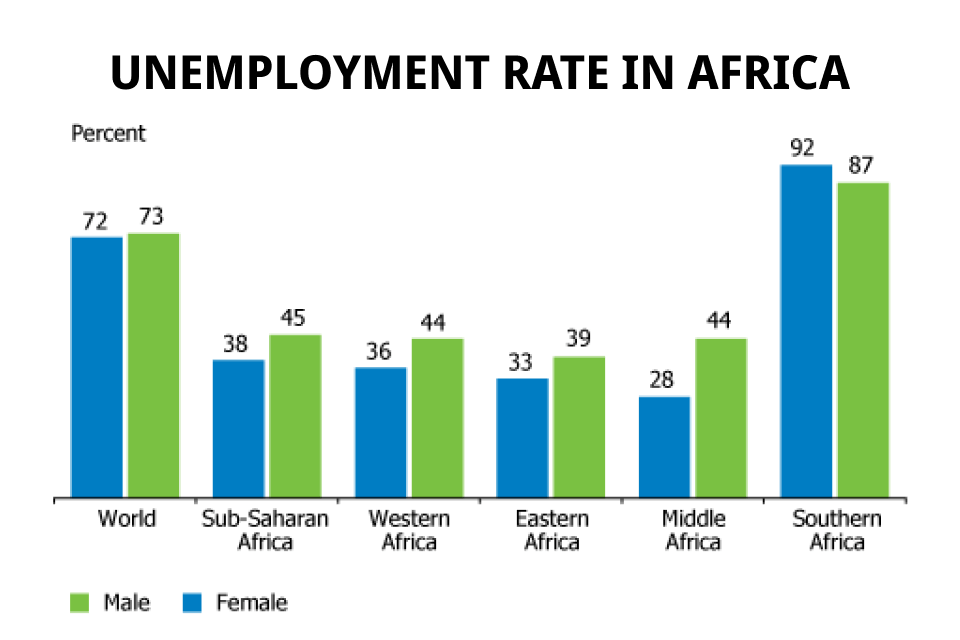Introduction
How to create youth empowerment programs in Africa requires a deep understanding of the continent’s unique social, economic, and cultural landscapes. Youth represent a vast portion of the population, and empowering them is critical to the region’s development. These programs must go beyond simple skill-building by addressing the real challenges young people face, including unemployment, lack of access to resources, and limited mentorship opportunities.
A well-structured youth empowerment program must focus on practical training in high-demand sectors like technology, agriculture, and the creative arts. Additionally, offering access to funding, tools, and continuous support is essential to ensure long-term success. By incorporating mentorship and fostering partnerships with local communities and stakeholders, these initiatives can create lasting impact.
To build effective, sustainable programs, understanding local needs and working with those on the ground is key. Curious about how to design such programs? Read on to discover the essential components for youth empowerment success in Africa.
Introduction: The Importance of Youth Empowerment in Africa
Africa has the youngest population in the world, with about 60% of its population under the age of 25. Youth empowerment is essential in transforming this demographic potential into social and economic progress. However, challenges such as unemployment, limited access to education, and inequality continue to hinder many young Africans from reaching their full potential. To harness this vast potential, creating targeted and effective youth empowerment programs is critical for driving sustainable development across the continent.
Overview of the Demographic Significance of Youth in Africa and Their Potential to Drive Social and Economic Change
Africa’s youth population is a powerful driving force for growth, innovation, and social transformation. With their energy, creativity, and adaptability, young Africans hold the key to unlocking the continent’s economic potential. If properly empowered, they can play a significant role in reducing poverty, advancing technology, and advocating for democratic governance. However, to fully harness these contributions, it is crucial to develop strategic youth empowerment programs that provide the necessary resources, training, and support systems. These programs will help guide young Africans toward realizing their full potential and shaping the continent’s future.
The Necessity for Targeted Youth Empowerment Programs to Address Challenges and Harness Opportunities
While Africa’s youth offer immense potential, they face several challenges, including high unemployment rates, lack of access to quality education, and inadequate life skills training. By designing youth empowerment programs tailored to these needs, communities can bridge the gap between challenges and opportunities. These programs must focus on equipping young people with the skills, knowledge, and support to become leaders in their communities and beyond.

Identifying the Needs and Challenges of African Youth
African youth face numerous challenges, including high unemployment, limited access to quality education, and inadequate healthcare. Political instability and poverty further restrict opportunities for growth. To unlock their potential, there is a need for targeted investments in skills development, entrepreneurship, and policies that address social and economic inequalities across the continent.
- Understanding Youth Demographics
Africa’s youth population is growing rapidly. In many countries, young people represent a significant proportion of the workforce, but unemployment remains a major concern. For example, the youth unemployment rate in sub-Saharan Africa stands at 14%, and many more are underemployed in informal sectors. Education levels also vary across the continent, with many young people lacking access to higher education or vocational training, limiting their economic opportunities.
- Common Challenges Faced by Youth
Some common challenges faced by youths includes the following but are not limited to it alone.
- Unemployment and Underemployment
High rates of joblessness are a major issue for African youth. Many young people work in informal sectors where income is uncertain, and job security is nonexistent. Even those with formal education often struggle to find employment that matches their qualifications, resulting in underemployment. Addressing unemployment requires programs that provide practical skills training and promote entrepreneurship.
- Access to Education and Skills Training
Quality education is not equally accessible across Africa, with barriers such as insufficient infrastructure, high costs, and limited access to vocational training. Youth empowerment programs need to focus on improving education opportunities, providing alternative pathways for skills development, and ensuring that young people have the necessary tools to thrive in today’s economy.
- Social and Economic Inequality
Youth empowerment programs must also address social and economic disparities, particularly those related to gender, socio-economic status, and geography. Young women, rural youth, and those from disadvantaged backgrounds often face additional challenges in accessing resources and opportunities. Tailoring programs to address these inequalities is essential to ensuring broad participation and success.
- Mental Health and Well-being
Mental health issues, such as depression, substance abuse, and societal pressure, are often overlooked in discussions of youth empowerment. Youth programs need to include components that address mental health and well-being, ensuring that young people are emotionally resilient and capable of handling the pressures of modern life.
- Conducting Needs Assessments
Before developing any youth empowerment program, it is crucial to conduct thorough needs assessments. This involves gathering data from youth, community leaders, and other stakeholders to understand the specific challenges faced in different regions. Surveys, focus groups, and interviews are valuable tools for identifying needs and ensuring that the program design is relevant and impactful

Designing Effective Youth Empowerment Programs
Effective youth empowerment programs focus on skills development, mentorship, and access to resources. Through offering training in entrepreneurship, leadership, and technology, these programs equip young people to overcome challenges like unemployment. Additionally, fostering partnerships between governments, NGOs, and private sectors ensures sustainable impact and opportunities for African youth to thrive.
- Setting Clear Goals and Objectives
For any youth empowerment initiative to achieve success, it is essential to establish clear and measurable goals. These objectives should be specific, realistic, and directly aligned with the identified needs of the target youth population. For example, a well-defined objective could be to reduce youth unemployment by 20% in a given community within five years through targeted skills development and effective job placement programs. This approach is crucial when considering how to create youth empowerment programs in Africa that truly make a difference in young people’s lives.
- Program Components
Effective program components include clear objectives, targeted activities, and measurable outcomes. Successful programs provide resources, training, and mentorship tailored to the specific needs of participants. Continuous monitoring and evaluation are essential for tracking progress, while partnerships with key stakeholders help enhance sustainability. Flexibility is also crucial, allowing programs to adapt to evolving challenges and changing environments. This approach ensures long-term success, maximizing the positive impact on beneficiaries and contributing to lasting social and economic development.
- Skills Development and Training
A key element in the important role of youth empowerment in shaping Africa’s future lies in providing practical skills training. Offering vocational courses, entrepreneurship workshops, and life skills education equips young people with the tools needed to thrive in the workforce. Programs should focus on high-growth industries such as technology, agriculture, and creative arts, which are booming sectors across Africa. By aligning training with these relevant fields, youth are better positioned to succeed and contribute to their communities’ economic growth.
- Mentorship and Coaching
Mentorship is a powerful tool in empowering youth, offering them a unique opportunity to learn from experienced professionals. Through these connections, young people gain valuable insights, guidance, and advice to navigate both career and personal development challenges. Establishing formal mentorship programs enhances the effectiveness of youth empowerment initiatives by providing ongoing support and fostering confidence. This sustained relationship helps young individuals overcome obstacles and equips them with the knowledge needed for long-term success.
- Access to Resources
In how to create youth empowerment programs in Africa,” providing skills training is just one aspect; youth also need access to essential resources like funding, tools, and materials to apply their new skills effectively. Empowerment programs that offer micro-loans, grants, or access to necessary equipment can greatly enhance the success rate of young entrepreneurs and professionals. Via supporting them with the right resources, these programs help foster sustainable growth and long-term success for African youth.
- Promoting Civic Engagement
Youth empowerment goes beyond just achieving economic success; it involves encouraging young people to take active roles in shaping their communities. Through civic engagement programs, youth can develop crucial leadership skills while fostering a sense of responsibility toward social change. These initiatives help young people understand their potential impact on society, empowering them to become agents of positive transformation and contribute meaningfully to the development of their communities.
- Culturally Relevant Programming
Creating youth empowerment programs in Africa requires a deep understanding of the local cultural context to ensure effectiveness and sustainability. Tailoring initiatives to align with regional values and traditions enhances their impact. Engaging local leaders and incorporating traditional knowledge fosters community acceptance. By involving youth directly and respecting their heritage, these programs become more relevant. This approach is key in developing successful, long-term strategies for youth empowerment across Africa.
Collaboration with Stakeholders in Youth Empowerment
A collaboration with stakeholders is crucial in youth empowerment programs. Governments, NGOs, private sectors, and local communities can pool resources and expertise to create sustainable solutions. In aligning goals and leveraging each partner’s strengths, programs can effectively address youth challenges, foster innovation, and ensure greater opportunities for long-term development and growth.
- Identifying Key Stakeholders
To create truly impactful youth empowerment programs, it is essential to engage a wide range of stakeholders, including government agencies, non-profits, educational institutions, businesses, and community organizations. These diverse stakeholders bring valuable expertise, funding, and networks that are critical for ensuring program success. In fostering strong partnerships across sectors, programs can more effectively address the needs of youth, creating sustainable opportunities for empowerment and growth within the community. This collaborative effort drives long-lasting impact.
- Building Partnerships
Collaborative partnerships play a crucial role in leveraging resources and scaling youth empowerment efforts. Whether through public-private partnerships, collaborations with NGOs, or community-based initiatives, these partnerships enable the pooling of expertise, knowledge, and resources. Through working together, stakeholders can create more comprehensive and sustainable outcomes that have a broader impact. This cooperative approach not only strengthens individual programs but also maximizes the reach and effectiveness of youth empowerment initiatives over the long term.
- Community Involvement
Involving community members in the planning and implementation of programs is vital to ensuring they are responsive to local needs. Due to actively engaging youth and community leaders in every step of the process, programs become more relevant, effective, and inclusive. This collaborative approach not only empowers the community but also fosters a sense of ownership and accountability. Ultimately, it ensures that the programs are well-suited to address the unique challenges and opportunities within the community.
- Funding Opportunities
Identifying sustainable funding sources is essential for ensuring the long-term success and impact of youth empowerment programs. Governments, international NGOs, and private sector sponsorships are key players that can provide the financial support needed to sustain these initiatives. Additionally, developing strong proposals and effectively pitching for grants can help secure the necessary resources. By diversifying funding streams, programs can maintain their momentum and continue empowering youth for years to come.

Measuring the Impact of Youth Empowerment Programs
Some major factors in measuring the impact of youth empowerment programs are:
- Developing Evaluation Frameworks
To effectively measure the success of youth empowerment programs, it is crucial to establish clear indicators and metrics from the outset. These should encompass both qualitative and quantitative data to provide a comprehensive and balanced understanding of the program’s overall effectiveness. Qualitative data offers insights into personal experiences and perceptions, while quantitative data presents measurable outcomes. Together, they ensure a thorough evaluation, highlighting strengths and pinpointing areas for future improvement and growth.
- Collecting Data
Data collection methods, such as surveys, interviews, and focus groups, are essential tools for gathering valuable feedback from participants and stakeholders. This information plays a key role in assessing whether the program’s objectives are being met and offers insights into areas that may require improvement. Through involving those directly impacted, the data collected provides a clearer picture of the program’s effectiveness and highlights opportunities to enhance future efforts and outcomes.
- Analyzing Results
Once data is collected, it must be thoroughly analyzed to evaluate the program’s successes and challenges. This critical step helps identify which aspects of the program worked well and where there were shortcomings. As a result of examining both strengths and weaknesses, adjustments can be made to improve future efforts. Continuous analysis ensures that the program evolves, stays relevant, and achieves its goals more effectively, ultimately leading to greater long-term success and impact.
- Reporting and Sharing Findings
Reporting and sharing the findings of youth empowerment programs is essential for promoting transparency, accountability, and ongoing support. Through effectively communicating the results to key stakeholders, participants, and the wider community, these programs ensure that everyone involved remains informed and engaged. This openness fosters trust and encourages future collaboration, helping secure resources and partnerships for continued growth. As Nelson Mandela once said, “Education is the most powerful weapon which you can use to change the world.” Sharing results is a step toward creating lasting change and empowerment.
Frequently Asked Questions (FAQs)
1. What is the most important aspect of youth empowerment programs?
The most critical aspect of youth empowerment programs is tailoring them to the specific needs of the young people they aim to serve. This approach ensures that the initiatives are both relevant and effective, ultimately leading to meaningful outcomes and positive impacts in their lives.
2. How can I get funding for a youth empowerment program?
Securing funding for youth empowerment programs can be achieved through various avenues. Government grants, support from international organizations, contributions from NGOs, and private sector sponsorships all play essential roles in providing the necessary financial resources to sustain and expand these impactful initiatives.
3. Why is mentorship important in youth empowerment?
Mentorship plays a vital role in empowering youth by offering guidance, support, and inspiration. It helps them navigate both career and personal challenges, fostering confidence and resilience. Through meaningful connections, mentors can share valuable experiences that encourage young people to pursue their goals.
4. What role does community involvement play in youth empowerment?
Community involvement plays a crucial role in ensuring that youth empowerment programs are tailored to meet local needs. Engaging community leaders and members not only fosters a sense of ownership but also enhances program effectiveness and encourages broader participation and support from the community.
5. How can the impact of youth empowerment programs be measured?
The impact of youth empowerment programs can be measured through data collection methods such as surveys, interviews, and focus groups. These tools provide valuable feedback from participants and stakeholders, helping assess the program’s effectiveness and identify areas for improvement and future development.
Conclusion
Youth empowerment is critical to Africa’s future prosperity, as it unlocks the immense potential of the continent’s young population. In addressing challenges such as unemployment, inequality, and limited access to education, targeted programs can transform the lives of millions of African youth. Designing effective youth empowerment programs requires a deep understanding of local contexts, needs assessments, and active collaboration with stakeholders, including governments, NGOs, and the private sector.
These initiatives must focus on practical skills development, mentorship, and access to resources while promoting civic engagement and mental well-being. Additionally, sustainable funding and clear goals are essential for long-term impact. Continuous monitoring and evaluation ensure that these programs remain relevant and effective, fostering a generation of empowered young people capable of driving social and economic transformation across Africa. Investing in youth empowerment is not only beneficial for the individuals involved but also key to the continent’s sustainable development.



